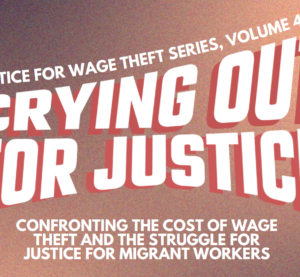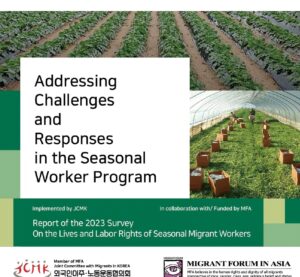MFA Statement at the 2nd Session of the Domestic Workers’ Committee
— June 3, 2010MFA STATEMENT AT THE SECOND SESSION
OF THE DOMESTIC WORKERS’ COMMITTEE
99th Session of the International Labour Conference
Geneva, 3 June 2010
A vast majority of the UN-estimated 60 million migrant workers in Asia are women and are predominantly engaged in domestic work. Most of them come from Indonesia, the Philippines, Bangladesh, Nepal, Sri Lanka, India, Myanmar, Thailand, and Lao PDR and are employed in Malaysia, Hong Kong, Special Administrative Region of China, Singapore, Thailand, Macau, India, Taiwan, Province of China, and the Middle East. Many more Asian women are employed as domestic workers elsewhere in the world.
Domestic workers are driven to engage in domestic work for various reasons – most common of which is the endemic poverty in their home areas that makes it impossible for them to have job opportunities in other industries or fields of work. Most of these women are driven from their own countries in the hope of earning better incomes abroad while they provide domestic services to foreign employers. This puts domestic workers in one of the most insecure of environments, where work is often casual, temporary, sub-contracted or informal, where benefits and conditions are not standardized – with no minimum wage, no set working hours, no social security, and no provisions for occupational safety – and where there is little, if any, labour and human rights protection.
Furthermore, despite the significant contributions of domestic workers to their own households and employers’ families, to communities and countries (both of origin and destination), and to the industries and economies in which they invest their time, skills, sweat and tears, these domestic workers have yet to enjoy the recognition that they have so long deserved. Domestic work is yet to be fully and widely recognised as work: domestic workers are yet to be covered by labour laws that protect and promote their rights, welfare, and dignity. Their work should be valued and respected as one of the essential job sectors that contribute to society’s productivity and development; therefore, their conditions of work must be on a par with other job categories and include valid work contracts and visas, social mobility, job security and collective labour rights.
A critical step for the International Campaign for the Rights and Recognition of Domestic Workers is the establishment of international labour and human rights standards specific to domestic workers. These will help set the minimum basis and standards for the recognition of the status and rights of domestic workers as workers.
The existing core UN instruments and the fundamental ILO labour standards can be and are being used by domestic workers’ groups and advocates in asserting the rights and status of domestic workers as workers. Foremost among these are CEDAW and the Migrant Workers’ Convention. However, all of these provide only partial coverage of domestic workers’ rights. A definitive, coherent, and comprehensive instrument is needed to clearly establish minimum standards and rights for ALL domestic workers as workers.
Migrant Forum in Asia (MFA), Asian Migrant Domestic Workers’ Alliance (ADWA), and the International Working Group for Domestic Workers (IWG-DW), believe an ILO Convention on Domestic Work will significantly contribute to the countering of slavery-like conditions, abuse, violence, exploitation, inequality, and discrimination against women and domestic workers. It will help eliminate the worst forms of child labour, the stigmatization and criminalization of migrant domestic workers, and racial and ethnic discrimination.
Finally, we emphasize the urgency of having domestic workers themselves centrally and critically involved in this process; otherwise, the non-recognition and marginalization of domestic workers will be reinforced. We recognize the domestic workers who are with us today. At this critical juncture where the fate of the proposed ILO Convention rests in the hands of governments, workers’ groups, and employers’ groups, we express our appreciation to those of the social partners that have recognized the importance of bringing into these halls the very domestic workers who will be directly affected by what is done or not done in their name in this 99th session of the ILC. We stand in solidarity with the domestic workers who cannot be physically present here but who engaged in the various national and regional processes to ensure their voices are heard and their demands for rights and recognition are considered, recognized, respected, and protected.
We are all eagerly anticipating a historic moment unfold in this year’s ILC.




